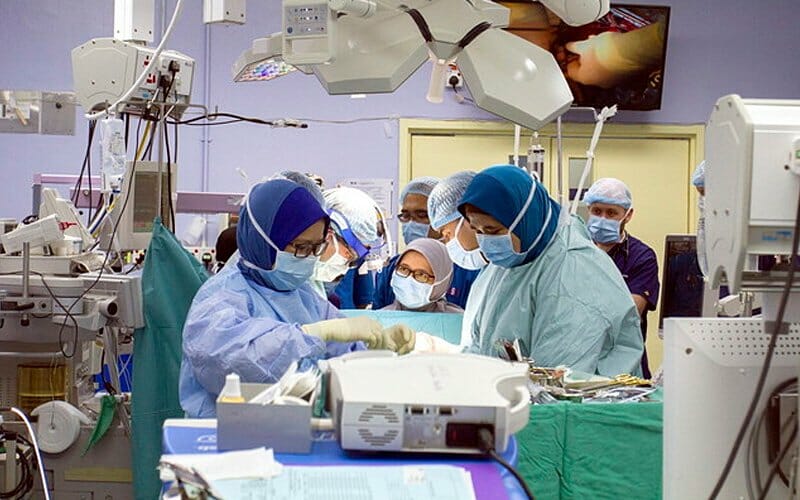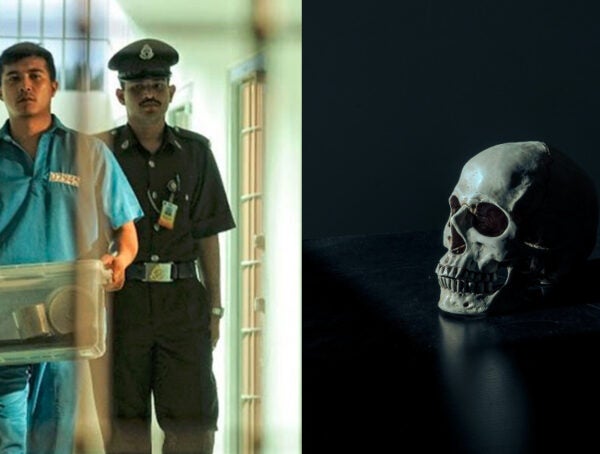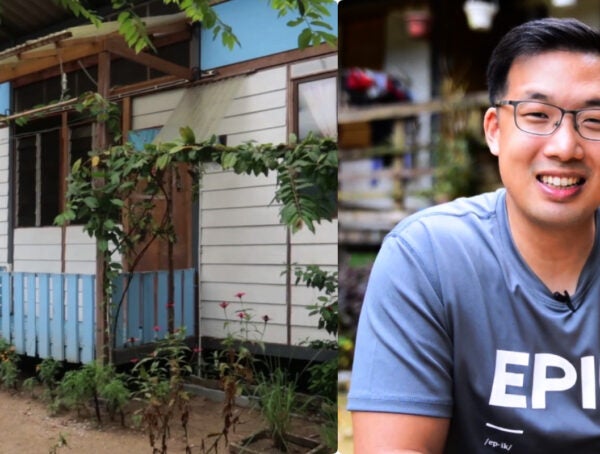In the light of the coronavirus (COVID-19) outbreak, Malaysia has been well-prepared to combat it. In 2019, we were ranked 18th in the Global Health Security Index for facing global biological events.
And yet, all is not fine and dandy in the Ministry of Health. Some time ago, a video of a doctor verbally abusing a patient at Rasah clinic, Seremban went viral.
In the video, the doctor is heard to shout: “After I settle this patient! You can wait or not? If you cannot wait, get out!”
On social media, some sided with the doctor, while others sided with the patient.
Some commenters said the doctor’s short temper could have been due to his heavy workload. And it’s true — Malaysian doctors are severely overworked.
I asked a few doctors to share why doctors are being overworked. Here’s what they had to say:
1. A heavy workload with no work-life balance

[image via hao shaw]
“From 8 am – 5 pm it can reach up to 50 patients per doctor,” he said.
I did the math in my head. But that’s only about 7-10 minutes per patient, I said.
“Yes, we don’t have the luxury to see a patient for 30 minutes in a clinic to chit-chat and talk about grandfather stories when many are waiting outside,” Zhang said dryly.
Zhang informed me that doctors don’t just sit in their office all day writing doctor’s notes for employees asking for sick leave.
“Other than clinical work we have a lot of paperwork to do, meetings to attend, events to plan, and community outreach programs, as well.”
Zhang says the number of patients keeps on increasing, but doctors are not.
But isn’t there currently an oversupply of medical students in the past few years?
“The oversupply of HOs is because of the bottleneck at both the facility level and trainer level,” J, a doctor who wished to remain anonymous, explains.
You don’t have enough hospitals, and you can’t flood the hospitals with HOs without compromising training standards,” he continued.
“And then, you also don’t have enough specialists in the government to train said HOs, because government pay is crap compared to the private sector,” he finished.
A House Officer (HO) is essentially a doctor-in-training. A Medical Officer (MO) is a fully-fledged doctor.
2. Lack of support staff and infrastructure

[image via bernama]
J says the lack of support staff and facilities means that doctors often need to do the leg work themselves.
“The problem is this: We don’t have enough facilities, we don’t have enough support staff, so we’re always doing stuff outside our job scope,” he huffed.
Due to a lack of support staff and equipment, they are often forced to work with what little they have.
“As a House Officer, I had to do the porter’s job, the physiotherapist’s job, the ward clerk’s job, and the nurse’s job,” says J.
What was the worst posting you’ve ever had?
“My worst time was when I went to work once at 6.30am, had to follow specialist rounds up to 3am the next day, went back to bathe, slept for less than 2 hours and was back on call at 7am till night,” revealed J.
J told me he had passed out from exhaustion — “I fell asleep in the doctor’s room and was woken up by my specialist, who gave me a warning,” he said ruefully.
Ironically, this sleep deprivation has even caused motor accidents in the past.
Kate, a former houseman, says the long turnaround times were compounded by the outdated recording system.
Usually, they have laptops allocated to the ward rounds so that medical officers can type it straightaway to the patient case file.
In Kate’s case, however, there was no maintenance or upgrades to the software. They had to do ward rounds using pen and paper, and then key it into the system.
“Essentially, we were doing the same work twice,” she pointed out exasperatedly.
3. Contracts with no clear direction from the top

[image via catabay]
“Nowadays, new doctors are hired on a contract basis. So that creates big problems where most doctors are unsure of their future and whether they can enter specialization training,” Zhang revealed.
Malaysian Medics International (MMI) has called for a review of the contract system for doctors in hospitals, stating they were unfair.
For Anjie, a doctor posted in Kota Kinabalu, she had to wait months before she was allocated a houseman position.
“Nobody knows how long their contract lasts. The government just keeps us guessing. If you get fired, you will just be given one month’s notice, ” says Anjie.
Doesn’t that make you feel like you’re on tenterhooks all the time?
“Yeap, it does. There are no clear criteria or indications. It’s all a grey area now, and that’s not fair to us.”
The lack of transparency even affects the doctors’ pay grade, with contract doctors having the same pay grade as housemen according to this news report.
4. A by-the-numbers work ethic
 [Image via NST]
[Image via NST]
It appears that a majority of doctors get defeated by the stressful work culture, ending up with very little empathy at the end of the day.
“Doctors begin to see patients as registration numbers, bed numbers, and diagnoses rather than people with real lives and real families,” says a doctor in this article.
“Sometimes you stop feeling anymore. When a patient dies, you clear the bed and a new patient comes in. We gotta diagnose and treat patients fast to make room for other patients who are waiting,” agrees Zhang.
J confided in me that at one point, he saw patients as “just meat bags of varying difficulties of blood taking.”
“In retrospect, I am horrified that I could even say such a thing. But at that time, that was how much the work had impacted my mentality,” confessed J.
5. A culture of seniors bullying juniors
Many housemen can’t cope with the stress and choose to go into other fields.
Kate was one of those who quit, citing patient load and her deteriorating mental health as her reasons for leaving.
“They justify it by saying: “You housemen have it easy, we went through worse!” But that’s not the point,” she said.
“We are meant to move forward and improve with the current times, not fall behind!” Kate said.
Kate disagrees that the heavy workload is a good justification for doctors to be rude to patients.
“I don’t think it’s the heavy workload per se. You can be overworked, but that does not justify you being explosive. There’s no justification for being so reactive.”

[image via ali yahya]
Is there hope for our Malaysian Doctors?
I asked the good doctors whether they saw the situation getting any better in the upcoming years.
“One of the good things they’ve done so far is to implement the shift system. They’ve cut down the working hours to about 60-plus a week,” says J.
New facilities have been planned to make up for the bottleneck in infrastructure, like the recently opened Hospital Shah Alam.
“There are pockets of doctors fighting to change the system by being more friendly and helpful in the unit,” says Zhang.
“On the balance of things, many specialists nowadays have changed. They are very positive and have a can-do spirit,” says Kate.
Kate says that, in retrospect, everyone in the paediatrics department were very nice and they appreciated the effort she and the other juniors put in.
What would you advise the public if you had a platform to say it?
“Well, my advice to the public is to be patient with the doctors, especially those working in a government setting. Don’t blame us for being slow,” says Zhang.
“People make mistakes sometimes, especially with lack of sleep and hectic workload. Be forgiving if it’s not causing big trouble for them,” he added.
How do you feel about the plight of doctors in our country? Let us know in the comments!
For more stories like this, read: Attempted Suicide: How Three Days in the Intensive Care Unit Changed My Life Forever and It took a lot to make me leave the education industry. Here’s my story.
You might also like
More from Real Skills
How I Saved Almost RM50,000 On Buying My First Car
Here's how this Malaysian man with a RM3,500 salary saved RM50,000 on his first car.
Angry M’sian Boss Demands Unpaid Overtime Over Raya, Causes 9 Staff To Quit
An anonymous employee at a local SME shares how a bad-tempered boss eventually caused 9 staff to quit before Hari …
I Studied In Chinese School As A Malay Boy, Here’s What I Learnt
Every time I used Mandarin outside of school, family members would come up to me at gatherings and ask me …

















